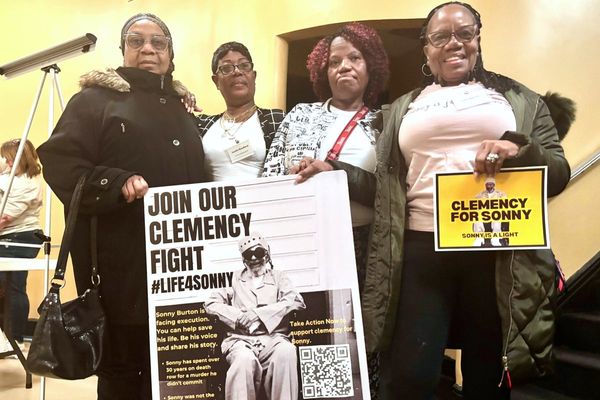WASHINGTON _ The Trump administration is quietly planning to move quickly to revive the Venezuelan economy after the fall of Nicolas Maduro by working with banks in the region to prepare for an infusion of U.S. dollars and investment to revitalize the oil-rich economy, a top White House economic official said Wednesday.
"We call it Day Two. I am heavily involved along with (Commerce Secretary) Wilbur Ross ... we have a lot of plans to revitalize the Venezuelan economy and to move very rapidly," said Larry Kudlow, director of the White House National Economic Council.
Speaking to a small group of reporters at a breakfast hosted by the Christian Science Monitor, Kudlow outlined preparations happening behind the scenes for what the White House views as the eventual fall of Maduro.
"There is financial planning, there is food planning, there is 'getting cash to these people on the streets' planning," Kudlow said.
If Maduro falls, it would close nearly two decades of nominal socialist rule under what President Hugo Chavez and his successor Maduro called their Bolivarian revolution. The country is suffering runaway inflation, nationwide power blackouts and food shortages, but Maduro shows few signs of crumbling.
Under what sort of economic model Venezuela rebuilds, and how it deals with endemic and chronic corruption are key questions.
"We've been working with banks in the region to help us. We have currency planning, we have IMF (International Monetary Fund) planning, and I don't want to go into details at this point ... but the answer is yes, absolutely, we will be moving as fast as we can and I hope the Venezuelan people understand that," Kudlow said.
Efforts to aid a post-Maduro Venezuela include payments in dollars, not Bolivars. This could open the door to following the example of Ecuador which embraced the U.S. dollar as their currency. Because Venezuela is a major oil exporter, its economic health is already tied to the strength or weakness of the U.S. dollar.
"Oil is a big part of it, but we want to re-incentivize the whole economy so they can broaden it out," Kudlow told the Miami Herald afterwards.
Among the ideas being discussed, he added, is dollar-denominated electronic payments to Venezuelan citizens after Maduro's fall, possibly through cellphone applications.
"It's pretty clever stuff," said Kudlow, who was a CNBC television personality before taking the high-profile White House job. He also served as a budget official during former President Ronald Reagan's first term.
During the breakfast, Kudlow acknowledged that financial sanctions imposed on the Venezuelan state oil company PDVSA have hurt U.S. oil producers who are invested there _ namely ConocoPhillips and Chevron Corp.
"I have met with all the CEOs, and they are fully behind us," Kudlow said. "The sums here are not insignificant, but they completely back it. Look, they are not happy either. PDVSA is the heart of the corruption in Venezuela and the financing of the corrupt government in Venezuela and so we will take whatever steps are necessary and, if we have to pick that up we will."







